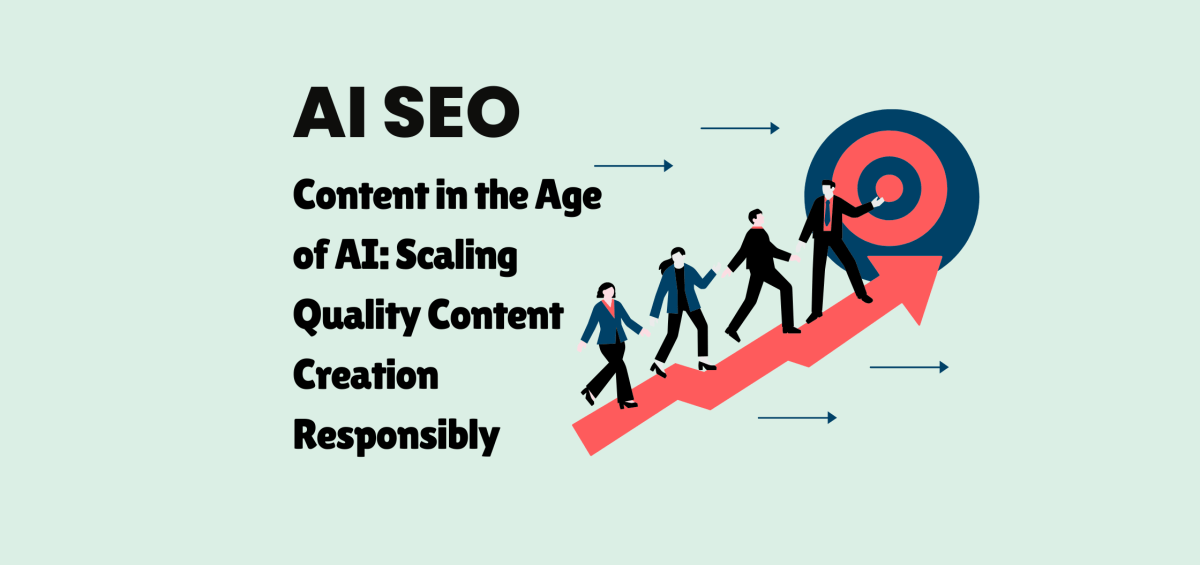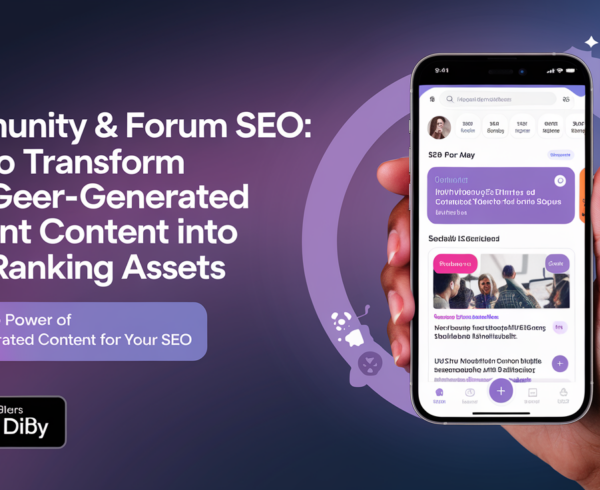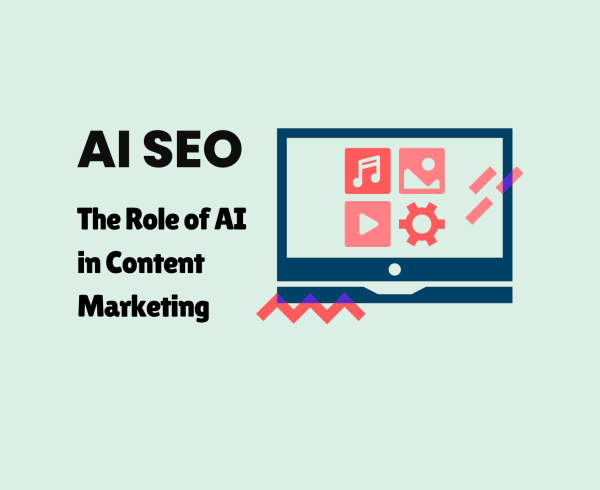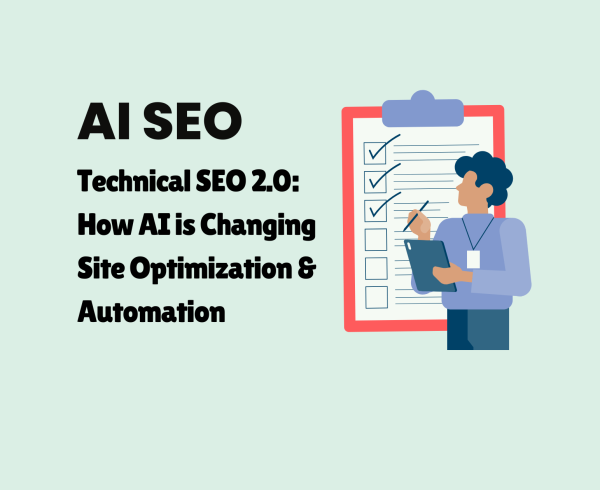Introduction
Content has always been the cornerstone of SEO, and it remains the most effective way to engage users and drive organic traffic. But as artificial intelligence (AI) becomes a more integral part of the content creation process, businesses are facing an entirely new challenge: how to scale content efficiently without sacrificing quality, authenticity, or trustworthiness. The rapid rise of generative AI tools like GPT-4, Jasper AI, and Writesonic has made it easier than ever to produce large volumes of content quickly. However, with this newfound ability comes responsibility. How can businesses leverage AI effectively while maintaining E-E-A-T (Experience, Expertise, Authoritativeness, and Trustworthiness)?
This article will dive into how AI can help businesses scale content production, while also ensuring that content remains high-quality, authentic, and true to the brand’s voice. We will explore best practices for integrating AI into your content strategy, maintaining editorial integrity, and optimizing content for SEO without losing the human touch that resonates with your audience.
Why AI is a Game-Changer for Content Creation
The traditional process of content creation—research, drafting, editing, and SEO optimization—has always been resource-intensive. Scaling that process can be particularly challenging, especially for businesses aiming to consistently deliver high-quality content. Enter AI. AI-driven tools have fundamentally changed the content creation landscape, allowing businesses to produce more content at a faster pace than ever before.
AI-powered platforms, especially those built on large language models like GPT-3 and GPT-4, excel at streamlining various aspects of content creation. Here’s how AI is transforming the content creation process:
1. Speed and Efficiency at Scale
- Content Ideation: AI tools can quickly analyze current trends, identify popular search queries, and suggest a variety of content ideas. For businesses, this means you can ideate and validate new topics rapidly.
- Draft Creation: AI-powered writing assistants are adept at generating the first draft of articles, blog posts, or landing pages based on specific inputs or guidelines. The speed at which AI can produce content allows businesses to meet their publishing needs without delay.
- Optimization for SEO: AI-driven SEO tools can help you optimize content for specific keywords, ensuring that your content meets SEO best practices. These tools can evaluate keyword density, readability, and SEO elements like meta tags or headings.
While these advantages are transformative, there is a risk of businesses producing low-quality content if AI is left unchecked. As AI handles the more time-consuming tasks, businesses need to ensure they don’t sacrifice authenticity or expertise in the process.
Balancing AI Efficiency with Content Quality
AI can make content creation faster and more efficient, but it cannot replace the human touch required to maintain quality. AI writing tools are impressive, but they are still tools, not replacements for human writers. To successfully scale content with AI, businesses must balance efficiency with authenticity, creativity, and accuracy.
1. Inject Your Unique Voice
One of the biggest challenges of using AI-generated content is ensuring it aligns with your brand’s voice and resonates with your target audience. While AI can generate grammatically correct and coherent content, it cannot replicate the distinct tone and personality that a human writer can bring. Your audience follows your brand for more than just information; they connect with your unique perspective and style.
Here’s how to maintain your brand’s voice in AI-generated content:
- Edit for Voice: Use AI to draft content, but always review and revise it to match your brand’s tone and messaging. For example, if your brand is known for being conversational and light-hearted, ensure that AI-generated content reflects this style.
- Add a Personal Touch: Incorporate unique insights, personal anecdotes, or company-specific knowledge into the content that AI can’t provide. This not only humanizes your content but also reinforces your authority in the subject matter.
Actionable Tip
Set up editorial guidelines for your team on how to edit AI-generated content to align with your brand’s voice. Make sure that AI assists in the process but does not replace the strategic thinking and tone that makes your brand recognizable.
2. Ensure Human Expertise in Every Piece of Content
While AI can assist with generating text and organizing information, human expertise is indispensable for building trust and credibility. Google’s E-E-A-T guidelines emphasize the importance of Experience, Expertise, Authoritativeness, and Trustworthiness in content, which AI alone cannot guarantee.
Here’s how to ensure your content maintains the highest standards of expertise:
- Work with Subject-Matter Experts (SMEs): Use AI to help with initial drafts or research, but always have your subject-matter experts review and refine the content. SMEs bring invaluable insights that elevate the accuracy and trustworthiness of your content.
- Back Content with Evidence: AI tools can process and synthesize vast amounts of information, but they cannot independently verify facts. Ensure that your AI-generated content is backed by credible sources, real-world examples, and data-driven insights to enhance its authority.
Actionable Tip
Collaborate with experts and ensure that AI-generated content undergoes rigorous review processes. Establish quality control checkpoints to verify facts, add original insights, and ensure that your content is authoritative and trustworthy.
Maintaining Quality Over Quantity
With AI at your disposal, the temptation to scale content production can be overwhelming. After all, AI can generate a massive amount of content in a short period. However, businesses must resist the urge to prioritize quantity over quality. As search engines, powered by AI, become more sophisticated, they can increasingly detect low-quality content, and sites that rely too heavily on keyword-stuffing or generic articles will be penalized in search rankings.
Here’s how to maintain focus on quality while scaling your content:
1. Create In-Depth, Authoritative Content
AI may be good at producing content quickly, but it’s still up to your business to provide value. Instead of churning out a high volume of generic blog posts or articles, focus on creating content that is comprehensive, well-researched, and solves real problems for your audience. Long-form content and pillar pages are great for building authority and ranking well with AI-driven search engines.
- Invest in Thought Leadership: Create thought leadership content, original research, or unique data that cannot easily be replicated by AI. This kind of content establishes your brand as an expert in your field and builds long-term trust.
Actionable Tip
Use AI to help scale content but set clear goals for quality. Aim for a mix of high-quality, in-depth content that adds real value and quick-turnaround pieces for topics that require regular updates or news coverage.
2. Refine AI-Generated Content
Once AI generates a draft, it should be treated as a starting point, not the final product. Your editorial team should review, refine, and enhance the content by adding more detail, improving the structure, and ensuring that the content aligns with user needs. This iterative process ensures that AI-generated content reaches its full potential and doesn’t lose depth in the rush to publish.
Actionable Tip
Always prioritize post-generation editing. Use AI tools to assist with research and drafting, but always focus on refining and improving the content to make it resonate with your audience and align with brand standards.
AI for SEO Optimization: Scaling Content for Search Engines
Content creation is only one side of the coin; ensuring that your content is discoverable on search engines is the other. AI-driven SEO tools can enhance your content’s searchability, making it easier for users to find your content through search engines. Here’s how AI can enhance SEO optimization:
1. AI for Keyword Research and Content Optimization
AI tools can analyze vast amounts of search data to identify high-potential keywords and phrases that are most likely to drive traffic to your content. By understanding search intent, AI can help optimize your content for keywords that align with what users are looking for. Additionally, AI can identify semantic keywords—related terms that can help rank your content for a broader range of queries.
- AI-Powered SEO Tools: Leverage AI tools to help with keyword research, meta tag optimization, and ensuring that your content uses the best possible SEO practices to boost organic reach.
Actionable Tip
Focus on semantic SEO by using AI to incorporate a variety of relevant terms and concepts around your core keywords. This will help your content rank for multiple related queries.
2. Natural Language Processing (NLP) for Readability and User Engagement
AI tools like GPT-4 use Natural Language Processing (NLP) to enhance readability and engagement. By optimizing your content for both SEO and user experience, AI can ensure your content is well-structured, easy to read, and engaging for your audience.
- Content Structuring: AI can suggest ways to improve the structure of your content, such as adding headings, subheadings, bullet points, and other elements that make your content more scannable.
Actionable Tip
Use AI tools to optimize readability by incorporating NLP-driven suggestions for sentence length, paragraph structure, and content flow.
Conclusion: Scaling Content with Integrity and Quality
AI has brought a new level of efficiency to content creation, allowing businesses to scale their content efforts while saving time. However, scaling content responsibly means ensuring that quality always trumps quantity. AI tools should complement human creativity and expertise, not replace them. By maintaining oversight, focusing on E-E-A-T, and ensuring content remains authentic, authoritative, and engaging, businesses can continue to scale their content without sacrificing quality or losing their brand voice.
In the next article, we will explore how AI-powered search features, like Google’s Gemini and Bing’s AI-powered search, are shaping the SEO landscape and how businesses can optimize their websites for these new AI-driven search experiences. Stay tuned!






